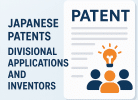Plant variety registration laws do not feature frequently in intellectual property news feeds, but a recent conflict has arisen in Korean Jeju Island where farmers acquired new varieties of Japanese mikan tangerines without formal licenses. Now that the varieties have been registered, the Korean agricultural cooperative received and approved a demand by the Japanese research corporation that registered the varieties, saying it wants avoid any future international conflicts over plant IP.
Until the farmers on Jeju pay royalties for the varieties “Mihaya” and “Asumi,” the central Korean cooperative is prohibiting Korean stores from selling these varieties. Korea and Japan are members of the International Union for the Protection of New Varieties of Plants, hence supposed to respect the registration. A Japanese research corporation filed for registration of “Mihaya” and “Asumi” about a year ago. Before that, in 2014, Korean farmers acquired these new varieties from Japanese farmers but did not make proper payment or go through licensing for them.
Record China reports many Koreans’ approval of the warning saying that Korean farmers should respect the international IP regulations. Hopefully resolution will come soon, before the 920 (metric) tons of mikans under restriction go bad.
* For questions or consultation, please contact us for more information.
** The information provided on this website is for informational purposes only and is not intended as legal advice.
Taro Yaguchi
Sources
Record China, 済州島のみかん、日本が特許問題提起で大量廃棄の危機=韓国ネットは「100%日本が正しい」[Jeju Island mikans in danger of huge disposal due to Japan’s taking issue over patent; Korean cyberspace response is “Japan is 100% right”], December 28, 2018.
International Union for the Protection of New Varieties of Plants, “Members.”






